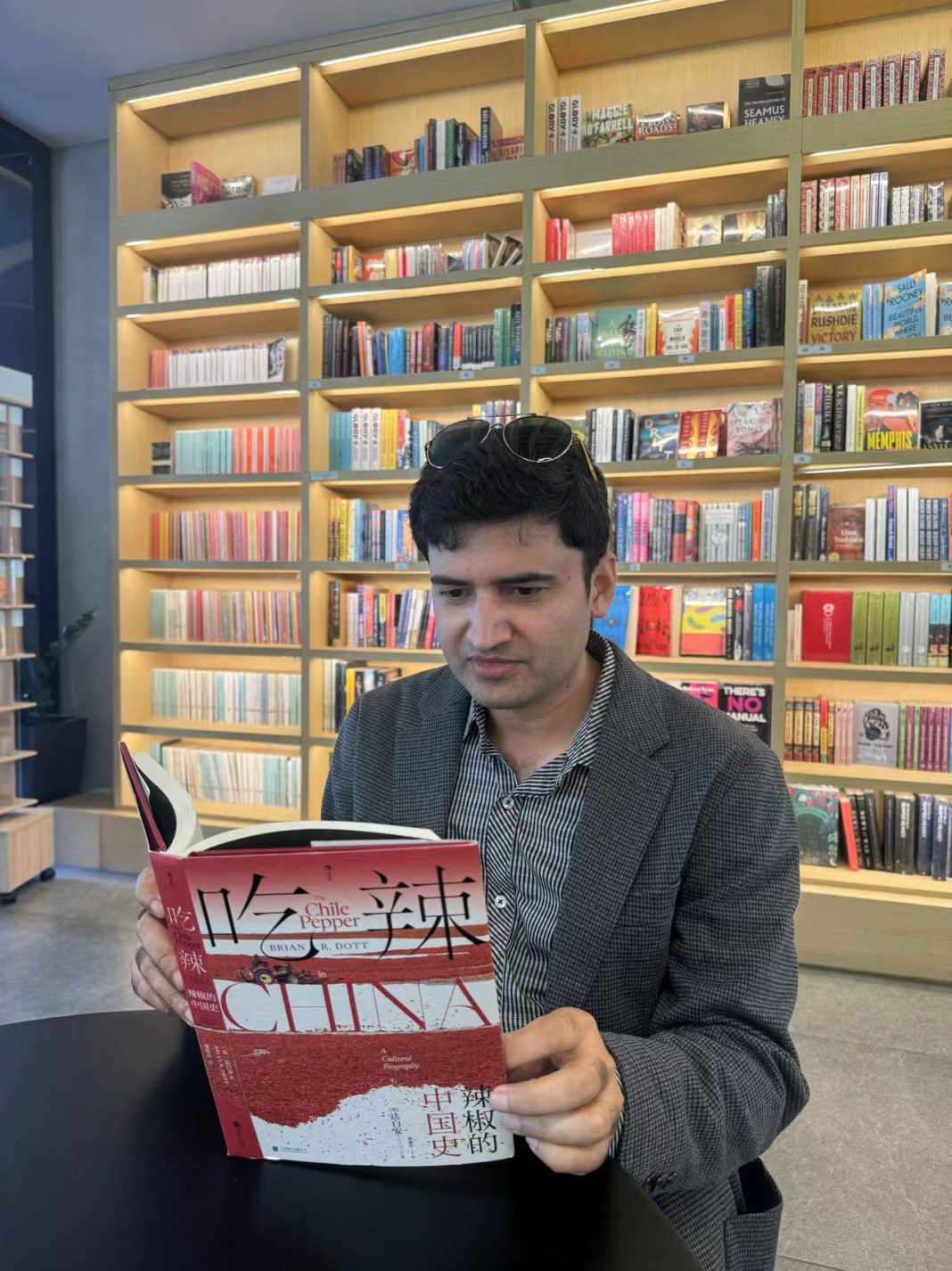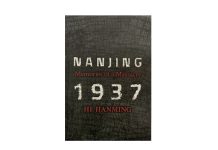By Zafar Hussain
One of the most glamorous landmarks of the Communication University of China is the CUC Culture Square, where every graduate would take a photo in front of the giant CUC logo wearing the gown. At the corner of the square, there stands a stone monument, engraved in Mandarin, “This is the end, but also the start”, which makes one of the most impressive enlightenment of CUC for all us CUCers. We have completed our journey at CUC as a student, but at the same time we have also started our careers as media and communication professionals, working and serving the development of the world.
My name is Zafar Hussain, a Pakistani student in communication, who has spent part of the most memorable years of my life at CUC as an international student. After graduated from the university, I found myself standing at the crossroads of opportunity and challenge. The decision to work in one of China’s leading economic media groups, China Economic Net, which is part of China Economic Daily, marked a pivotal moment in my life, both personally and professionally. What started as a passion for media communication has now evolved into a profound mission—one that transcends borders, cultures, and economies, as I strive to strengthen the bond between Pakistan and China.
From Pakistan to China: A Journey of Discovery
My journey began in Pakistan, where I grew up with a fascination for global media and international relations. Communication, in its broadest sense, was something I felt deeply connected to. After completing my initial studies, I sought an international perspective and was drawn to the Communication University of China, renowned for its emphasis on media, journalism, and cutting-edge technology, which Pakistan is rapidly converting now because of its young population.
During my time at the university, I immersed myself in a rich environment of academic excellence and cultural exchange. The decision to study in China wasn’t merely about education; it was about stepping into a country that is rapidly becoming a global media powerhouse. The diversity of ideas, exposure to state-of-the-art technology, and the opportunity to engage with industry leaders shaped my understanding of the media world. I knew early on that this experience would help me carve a niche for myself in the ever-evolving media landscape.
After graduating with honors, I received a unique opportunity to work with one of China’s top economic media groups, fulfilling a long-held dream for anyone in the journalism and communication fields. This was not just a career milestone but also the start of a new role—one where I could contribute to strengthening the relationship between two brotherly countries, Pakistan and China.
The Role of Media in Shaping Global Economies
I joined a media group that specializes in economic analysis, trade trends, and international business, providing content for both Chinese and global audiences. Working here gave me a front-row seat to how media can influence not only public opinion but also major economic decisions.
My role in this media giant involved covering a wide range of topics, including China’s Belt and Road Initiative (BRI), trade agreements between Pakistan and China, and relations. Because the China-Pakistan Economic Corridor (CPEC) is one of the most significant projects under the BRI, I had the opportunity to report on, analyze, and provide in-depth commentary on the latest developments. This included conducting interviews with economists, business leaders, and government officials from both countries, as well as Pakistan’s Prime Minister.
Bridging Cultures and Strengthening Ties
One of the most rewarding aspects of my work is the opportunity to act as a bridge between China and Pakistan. With both countries sharing a long-standing diplomatic and economic relationship, there is an immense potential for collaboration in various fields, from infrastructure to technology and trade.
In my role, I aim to highlight the shared interests, values, and goals between the two nations. Through my reports and analysis, I provide a nuanced understanding of the benefits and challenges of Pakistan-China relations, particularly within the context of CPEC. One of my primary focuses has been dispelling misconceptions about the project and offering a balanced view of its economic, social, and geopolitical implications for both nations.
As a Pakistani working in China, I find myself in a unique position to convey the perspectives of both countries. I understand the cultural nuances, the economic priorities, and the political sensitivities that can sometimes create barriers to mutual understanding. By serving as a cultural and linguistic bridge, I’ve been able to foster dialogue and cooperation between key stakeholders in both countries.
My fluency in English and Urdu, as well as some knowledge about them, has been an invaluable asset in this process. It allows me to navigate between the two worlds, conducting interviews and research in both languages, which often brings deeper insights. In conversations with Pakistani officials and business leaders, I can provide them with a clearer picture of how their Chinese counterparts perceive certain issues, and vice versa. In this role, translating language and culture is one of my most valuable skills.
The experience has not only expanded my professional expertise but has also enriched my understanding of international media ethics. I discovered that the media in Pakistan typically concentrates on political matters and criticism, while the journalism here is more constructive. In my work, I am constantly finding ways to align the strategic interests of both nations, ensuring that my reports are accurate, balanced, and respectful of the sensibilities involved.
On a personal level, my journey has been transformative. Living and working in China has given me a new appreciation for cultural diversity, global economic systems, and the power of communication. The relationships I have built with my Chinese colleagues, the insights I have gained into China’s development model, and the lessons I have learned about international media are invaluable.
Media outlets, academic institutions, and government agencies in Pakistan frequently cite my articles and reports as a result of my work. It is gratifying to see my efforts making an impact, however small, on the broader narrative of Pakistan-China relations.
As I continue to work in this dynamic field, I am excited about the future. The world is becoming increasingly interconnected, and the role of media in shaping international relations is more critical than ever. I hope to continue serving as a bridge between Pakistan and China, using my skills and experience to foster dialogue, collaboration, and mutual respect.
Working in China’s top economic media group as a graduate of the Communication University of China has been a life-changing experience. It has allowed me to grow professionally while playing a vital role in strengthening the relationship between two countries that are pivotal to each other’s future.
As I look to the future, I remain committed to leveraging the power of media to foster closer ties between Pakistan and China, thereby advancing our shared journey towards prosperity and mutual respect.





